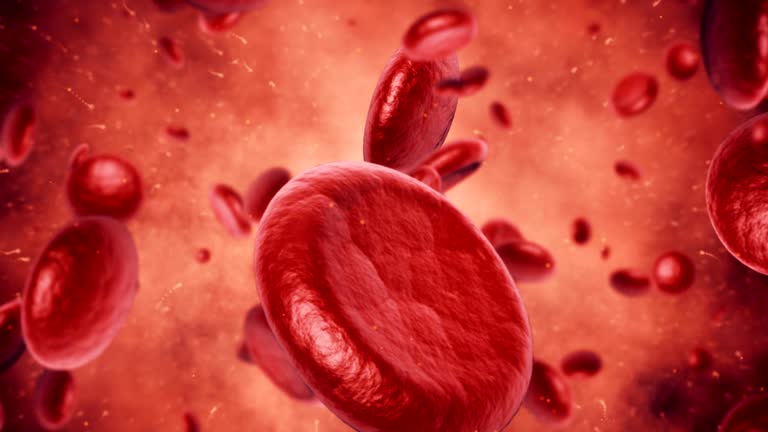High Cholesterolemia in Dubai: Understanding Symptoms and Prevention
 Modern lifestyles, dietary habits, and genetic factors have contributed to the rise of High cholesterolemia Dubai cases. Cholesterolemia refers to elevated cholesterol levels in the blood, a condition that can silently increase the risk of cardiovascular diseases if left untreated. Many individuals in Dubai are unaware of the long-term impact of high cholesterol and the importance of prevention through healthy choices and medical monitoring. This article explains the symptoms, causes, and preventive measures for high cholesterolemia, along with practical advice to maintain heart health.
Modern lifestyles, dietary habits, and genetic factors have contributed to the rise of High cholesterolemia Dubai cases. Cholesterolemia refers to elevated cholesterol levels in the blood, a condition that can silently increase the risk of cardiovascular diseases if left untreated. Many individuals in Dubai are unaware of the long-term impact of high cholesterol and the importance of prevention through healthy choices and medical monitoring. This article explains the symptoms, causes, and preventive measures for high cholesterolemia, along with practical advice to maintain heart health.
What Is High Cholesterolemia?
Cholesterol is a fatty substance produced by the liver and obtained through certain foods. While cholesterol is essential for hormone production and cell function, an excessive amount leads to High cholesterolemia Dubai, where harmful low-density lipoprotein (LDL) cholesterol accumulates in the blood. This buildup can narrow arteries and significantly increase the risk of heart disease and stroke.
Symptoms of High Cholesterolemia
One of the challenges with this condition is that it often has no obvious symptoms. However, in advanced stages, individuals may notice:
- Chest pain or angina due to reduced blood flow.
- Shortness of breath during physical activity.
- Fatty deposits under the skin (xanthomas).
- Increased risk of heart attack or stroke.
Because symptoms usually appear late, regular health check-ups are crucial for early detection.
Causes and Risk Factors
Several factors contribute to High cholesterolemia Dubai, including:
- Unhealthy diet: Consuming foods high in saturated fats and trans fats.
- Sedentary lifestyle: Lack of physical activity can lower good cholesterol (HDL) levels.
- Obesity: Excess weight raises LDL cholesterol and triglycerides.
- Genetics: Familial hypercholesterolemia increases risk regardless of lifestyle.
- Medical conditions: Diabetes, hypothyroidism, and kidney disease can worsen cholesterol levels.
Prevention of High Cholesterolemia
Healthy Diet Choices
Eating a balanced diet is key to prevention. Incorporating fruits, vegetables, whole grains, and lean proteins while reducing processed foods helps maintain healthy cholesterol levels.
Regular Exercise
At least 30 minutes of moderate activity five times a week boosts good cholesterol (HDL) and lowers LDL. Activities such as walking, swimming, and cycling are highly effective.
Weight Management
Maintaining a healthy weight reduces strain on the cardiovascular system and helps balance cholesterol levels.
Routine Medical Screenings
Regular cholesterol tests allow early diagnosis and timely intervention, lowering the risk of serious complications.
Avoiding Smoking and Excessive Alcohol
Smoking lowers HDL cholesterol while alcohol in excess can raise triglyceride levels. Quitting smoking and limiting alcohol intake significantly reduce risks.
Treatment Options
If lifestyle changes are not enough, doctors may prescribe medications such as statins, bile acid sequestrants, or PCSK9 inhibitors to control cholesterol. Patients in Dubai are advised to consult healthcare providers for personalized treatment plans.
5 FAQs About High Cholesterolemia in Dubai
Q1: Can high cholesterol be completely cured?
It cannot always be fully cured, but with lifestyle changes and treatment, it can be effectively managed.
Q2: How often should I check my cholesterol levels?
Adults should have their cholesterol checked every 4–6 years, or more frequently if at risk.
Q3: Is high cholesterol hereditary?
Yes, familial hypercholesterolemia is a genetic condition that significantly increases cholesterol levels from an early age.
Q4: Can children develop high cholesterol?
Yes, especially if they have a family history or are overweight. Regular pediatric check-ups are recommended.
Q5: Does diet alone control cholesterol?
For many, diet and exercise are enough, but some may still require medication depending on their condition.
Conclusion
High cholesterolemia Dubai is a serious but manageable condition. By adopting a healthier lifestyle, undergoing regular check-ups, and seeking timely medical advice, individuals can significantly reduce their risks of cardiovascular diseases. Early prevention and patient awareness are the keys to maintaining long-term health and well-being in a fast-paced environment like Dubai.
